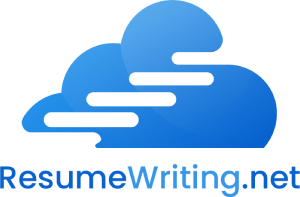In today’s fast-paced job market, standing out from the crowd is crucial. With hiring managers and recruiters often sifting through hundreds of resumes for a single position, the language you use in your resume can make a significant difference. Enter resume buzzwords—those impactful, action-oriented terms that can highlight your qualifications and ensure your application gets noticed. However, not all buzzwords are created equal, and using them effectively requires a strategic approach. This guide will explore the importance of resume buzzwords, the most impactful ones to use, and how to integrate them seamlessly into your resume.

The Importance of Resume Buzzwords
Resume buzzwords are specific terms and phrases that can help your resume get past both human recruiters and Applicant Tracking Systems (ATS). These systems are designed to filter out resumes that do not meet certain criteria, often based on keywords. By incorporating the right buzzwords, you increase the likelihood of your resume making it to the next stage of the hiring process.
Moreover, buzzwords can:
- Demonstrate Relevance: They show that you are familiar with industry-specific language and trends.
- Highlight Achievements: Buzzwords can effectively emphasize your accomplishments and the impact you have had in previous roles.
- Capture Attention: Recruiters and hiring managers often skim resumes, so impactful words can quickly convey your qualifications.
Top Resume Buzzwords and How to Use Them
Using the right buzzwords can transform a mundane resume into a compelling narrative of your career. Here are some of the top resume buzzwords categorized by their utility:
- Action-Oriented Buzzwords
- Achieved: Showcases your accomplishments and highlights results. For example, “Achieved a 20% increase in sales through targeted marketing strategies.”
- Improved: Indicates your role in enhancing processes or outcomes. Example: “Improved customer satisfaction scores by 30% through effective team management.”
- Implemented: Demonstrates your ability to execute plans and projects. Example: “Implemented a new inventory management system that reduced costs by 15%.”
- Leadership and Management Buzzwords
- Led: Highlights your leadership abilities and experience in guiding teams. Example: “Led a cross-functional team of 10 to deliver a successful product launch.”
- Mentored: Shows your capacity to support and develop others. Example: “Mentored junior staff, resulting in a 50% reduction in training time.”
- Managed: Indicates your experience in overseeing projects or departments. Example: “Managed a budget of $1 million for the annual marketing campaign.”
- Results-Oriented Buzzwords
- Delivered: Emphasizes your role in achieving specific outcomes. Example: “Delivered quarterly reports ahead of schedule, increasing stakeholder trust.”
- Generated: Highlights your ability to produce tangible results. Example: “Generated $500,000 in new business through strategic partnerships.”
- Exceeded: Demonstrates your ability to surpass goals. Example: “Exceeded sales targets by 25% for three consecutive quarters.”
- Problem-Solving Buzzwords
- Resolved: Shows your ability to address and fix issues. Example: “Resolved customer complaints within 24 hours, enhancing overall satisfaction.”
- Analyzed: Indicates your analytical skills and ability to interpret data. Example: “Analyzed market trends to inform product development strategies.”
- Optimized: Highlights your efficiency in improving processes. Example: “Optimized supply chain operations, reducing delivery times by 20%.”
- Team and Collaboration Buzzwords
- Collaborated: Demonstrates your teamwork and cooperation skills. Example: “Collaborated with the IT department to develop a new company intranet.”
- Coordinated: Shows your organizational and multitasking abilities. Example: “Coordinated events and conferences for up to 500 attendees.”
- Facilitated: Indicates your role in enabling processes and communication. Example: “Facilitated weekly team meetings to ensure project alignment.”
How to Seamlessly Integrate Buzzwords
Using buzzwords effectively is more than just peppering them throughout your resume. Here are some tips to ensure they enhance rather than detract from your application:
- Context Matters: Buzzwords should be embedded within concrete examples of your work. Rather than listing skills or responsibilities, describe specific situations where you demonstrated these qualities. For instance, “Implemented a customer feedback system that increased satisfaction scores by 20%,” is more powerful than just “Implemented feedback system.”
- Tailor to the Job Description: Review the job posting carefully and identify key terms used by the employer. Reflect these terms in your resume to show that you are a perfect fit for the role. For example, if the job description emphasizes “project management” and “team leadership,” make sure these phrases appear prominently in your resume.
- Avoid Overuse: While buzzwords are important, overusing them can make your resume feel forced and insincere. Aim for a natural incorporation of these terms, ensuring each one adds value to your narrative.
- Focus on Achievements, Not Duties: Employers are more interested in what you have accomplished rather than what your daily tasks were. Use buzzwords to highlight your successes and the impact of your work. For example, instead of “Responsible for managing a team,” say “Led a team of 10 to achieve a 15% increase in productivity.”
- Quantify Your Successes: Whenever possible, back up your buzzwords with numbers. Quantifiable achievements are more compelling and provide concrete evidence of your capabilities. For example, “Generated $200,000 in revenue within six months by securing new client contracts.”
Common Mistakes to Avoid
While buzzwords can be powerful, misusing them can hurt your chances. Here are some common pitfalls to watch out for:
- Vagueness: Buzzwords without context or detail can come across as empty jargon. Be specific about your achievements and how you accomplished them.
- Irrelevance: Including buzzwords that do not align with your actual experience or the job you are applying for can be misleading and may backfire during an interview.
- Clichés: Some buzzwords have become overused to the point of losing their impact. Words like “hardworking,” “team player,” and “detail-oriented” are often seen as filler unless supported by specific examples.
Final Thoughts
Resume buzzwords are essential tools in crafting a resume that stands out in a competitive job market. They can help you pass through ATS filters, capture the attention of recruiters, and effectively convey your qualifications and achievements. By carefully selecting and strategically incorporating these terms, you can transform your resume into a powerful representation of your professional story.
Remember, the key to effective use of buzzwords is authenticity. Make sure each word you choose accurately reflects your skills and experiences. With the right approach, your resume writing can open doors to new career opportunities and set you on the path to success.

